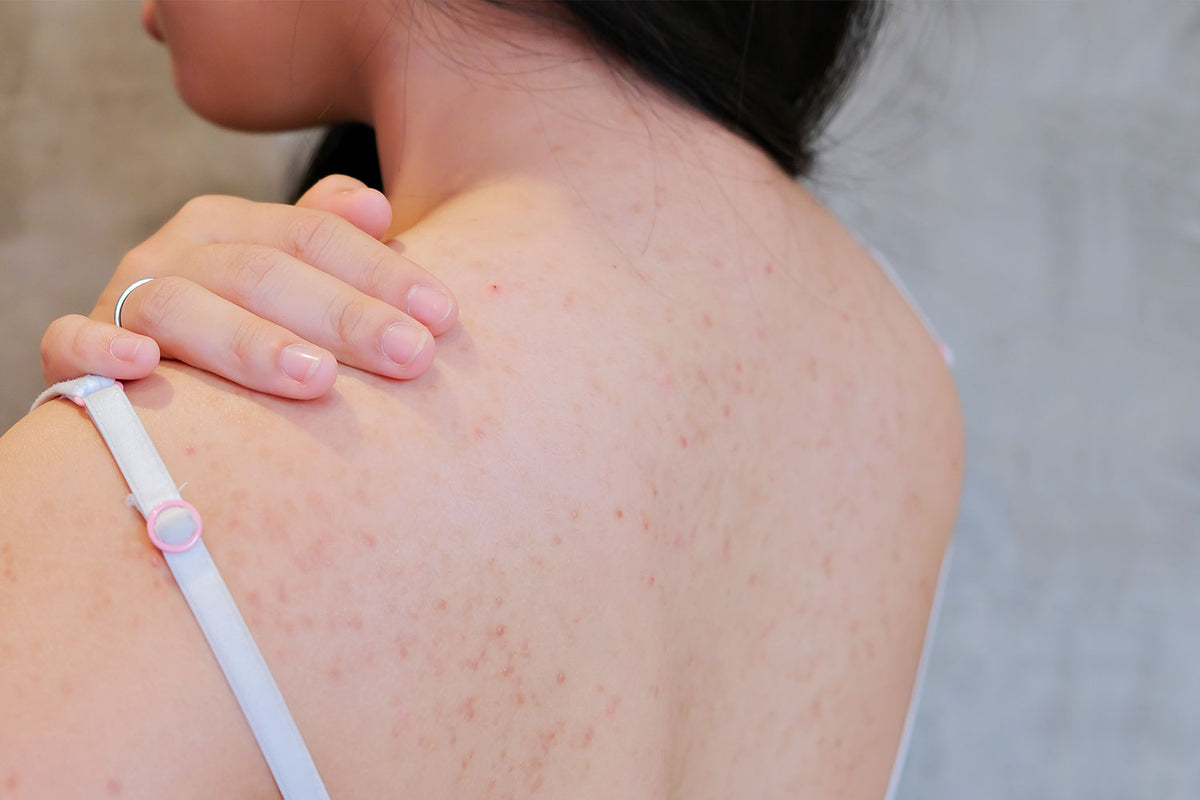Does Coconut Oil Cause Butt Pimples? Insights for Beauticians
In the world of skincare, there is an ongoing debate: does coconut oil cause butt pimples? This topic has garnered much attention, especially among individuals who frequently incorporate natural products into their beauty regimens. As a beautician, it's imperative to understand both the benefits and drawbacks of using coconut oil on the skin in order to provide informed advice to your clients.
Understanding the effects of coconut oil, particularly when it comes to acne and skin health, is essential. Coconut oil has gained immense popularity due to its natural moisturizing properties. Yet, its impacts can vary significantly depending on skin type and personal conditions. This article will delve into the intricacies of using coconut oil and shed light on how it can influence the skin, specifically around the buttock area.
:max_bytes(150000):strip_icc()/Health-GettyImages-1199366228-68076b11f747454fa13e21aa3f5920b6.jpg)
Coconut Oil in Skincare
Coconut oil is lauded for its hydrating capabilities, creating a layer that can help trap moisture. This feature can provide a smooth and hydrated texture, beneficial for many skin types. However, it is also comedogenic, meaning it can clog pores, leading to potential pimples in areas like the buttocks.
The question arises whether its benefits outweigh the risk of acne formation. With varying opinions, the answer isn't entirely straightforward. Some people experience increased breakouts after using coconut oil, while others have clear, glowing skin thanks to its nourishing benefits.
Butt Pimples: Causes and Concerns
Buttock breakouts, commonly known as butt acne, can be a nuisance. A combination of clogged hair follicles, bacteria, and excess oil production often results in these blemishes. While DIY products causing butt acne are typical, it's crucial to uncover specific culprits.
Coconut oil, due to its comedogenic nature, can contribute to the formation of pimples on the buttocks if one's subcategory of skin is prone to oiliness or clogged pores. Therefore, beauticians must approach its usage with caution, emphasizing careful consideration of skin type before recommending coconut oil products.
Alternate Uses and Recommendations
While coconut oil may not be ideal for everyone, there are alternative solutions. For example, products containing non-comedogenic oils may offer a better choice for those with acne-prone skin. Additionally, implementing a more tailored skincare routine, including gentle exfoliation with ingredients like tea tree oil, may decrease the likelihood of butt pimples.
For those struggling with fungal acne or body acne, numerous treatments exist that do not involve coconut oil. Understanding and applying tea tree oil for fungal acne and selecting specific tips for managing body acne can be more beneficial without the risk of clogging pores.
How to Advise Clients
As beauticians, it's your role to guide clients through the nuances of using coconut oil. Educating them about potential risks, especially for acne-prone skin, ensures confidence in the products you recommend. Encourage clients to do a patch test before incorporating new products into their regular regimen.
Recommending evidence-based practices, like using a suitable shower routine with acne considerations and endorsing products after thoroughly assessing their skin type, strengthens your credibility and trustworthiness.
Expert Opinions and Insights
Listening to dermatologists and industry experts can offer further clarity on coconut oil's role in skincare. While opinions differ, many professionals advocate moderation and customized skincare solutions to cater to different skin needs. For enduring results, clients' skin types and personalized skincare routines must remain a vital part of the discussion.
Should You Use Coconut Oil?
Ultimately, deciding if coconut oil is suitable for someone depends on understanding the potential for pore-clogging and recognizing individual skin reactions. Emphasize the importance of using appropriate skincare techniques and seeking expert advice when uncertainty arises.
Guiding clients through personal skincare journeys involves acknowledging the benefits of natural ingredients while also recognizing potential risks. If concerns about coconut oil persist, alternatives like natural shea butter, jojoba oil, and other non-comedogenic substances could be explored.
Conclusion on Coconut Oil's Role in Butt Acne
On the question, does coconut oil cause butt pimples the evidence stakes out both sides. While traditionally praised for its myriad benefits, its adverse effects should not be overlooked. Providing objective advice and encouraging a balanced approach when using coconut oil can enhance your role as a trusted beauty advisor.
Further reading on how to effectively manage acne and discover more detailed insights into beauty care can be found in external resources. For instance, explore this comprehensive guide on Amazon for in-depth understanding.

FAQs About Coconut Oil and Butt Pimples
Is coconut oil good or bad for acne-prone skin?
Coconut oil's impact varies. Its excellent for hydrating, but for those with acne-prone skin, it might clog pores and cause breakouts.
What are some alternatives to coconut oil for skin hydration?
Non-comedogenic oils like jojoba or argan oil are fantastic alternatives for those who experience breakouts with coconut oil.
How can I advise clients about the use of coconut oil?
Encourage patch tests and personalized skincare evaluations. Offer alternatives when necessary and share guidance based on individual skin needs.
This article contains affiliate links. We may earn a commission at no extra cost to you.

